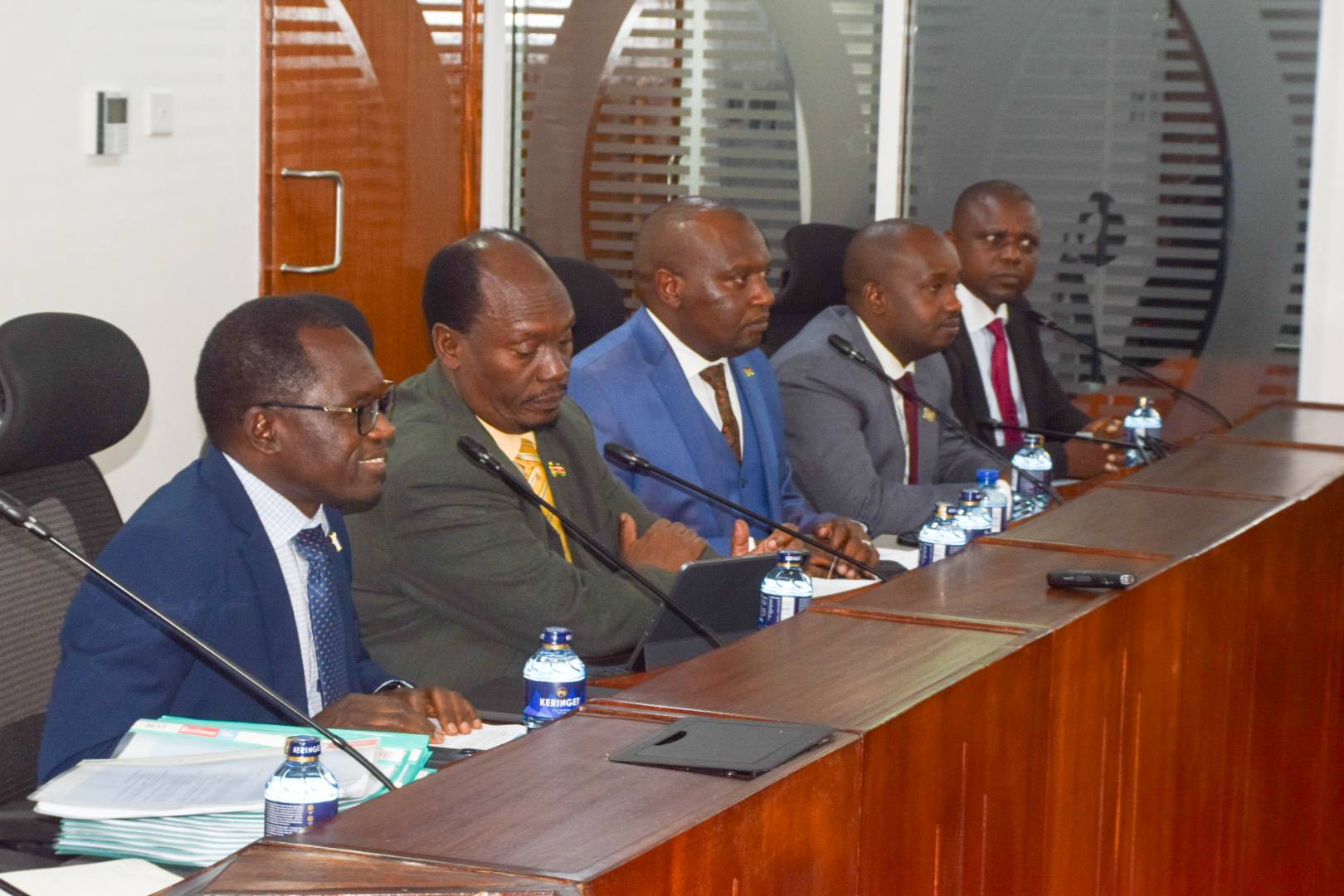Members of Parliament have opposed proposed regulations by the government seeking to revise media operations under the new Code of Conduct for Media Practice, 2025, warning that the changes could weaken press freedom and expose journalists to unfair penalties.
The concerns were raised during a meeting of the National Assembly’s Committee on Delegated Legislation at Parliament Buildings, where ICT and Digital Economy Cabinet Secretary William Kabogo briefed lawmakers on the contents of the new code.
The session, chaired by Ainabkoi MP Samuel Chepkonga, was also attended by Principal Secretary for Telecommunications and Broadcasting Stephen Isaboke and Media Council of Kenya Chief Executive Officer David Omwoyo.
The draft Code, which aims to replace regulations that have been in place for 13 years, expands the number of clauses from 26 to 32.
Among the most contested provisions is a redefinition of the term “claim,” which the draft describes as “any statement, assertion or representation of fact, opinion or belief presented as true in a publication whether in written, oral or digital form that is subject to verification unless derived from a privileged or legally protected document where verification is impracticable.”
MPs questioned the legality of the phrase “protected document,” with Kilgoris MP Julius Sunkuli saying, “The word ‘claim’ has been assigned a different meaning from the one known.” Other members warned that the clause was not clearly anchored in law and could limit investigative journalism.
Despite attempts by Media Council CEO Omwoyo to explain that protected documents refer to materials such as court files and other legally obtained government documents, the committee members remained unconvinced.
In addition to the language issues, MPs criticised broader proposals in the code, including the introduction of a mandatory seven-second delay on all live broadcasts.
According to Omwoyo, the delay would allow editors time to determine if live content is fit for airing, especially during sensitive situations like violent protests or emotionally charged events.
CS Kabogo linked the proposal to past experiences, noting, “You realize it went on for a while as long as it was peaceful, but when the violence became too much, the responsible committee advised that a lot of violent content was being aired, very close to children. It was for that purpose that it was switched off—not for any other reason.”
The lawmakers, however, raised fears that the requirement could be used to restrict real-time coverage of events, including rallies or protests. Kathiani MP Robert Mbui said, “The regulation says the media must verify statements made in public before publication. If I say something at a rally, the journalist must verify it first? I believe the media should report what I say, not vet it. This seems like an attempt to muzzle the media in subtle ways.”
Vice Chair of the Committee Robert Gichimu also took issue with a proposal requiring journalists to maintain evidence of attempts to contact individuals mentioned in stories, as well as a rule mandating quotation marks in headlines involving allegations. He warned that such rules risk criminalising standard reporting practices.
Other measures in the code include penalties for publishing misleading headlines, rules on separating betting content from news, mandatory visual and verbal warnings before broadcasting distressing content, and a complete ban on disturbing images unless anonymised and justified in the public interest.
The new rules also call for clear labeling of AI-generated content, mandatory human oversight in its use, and editorial accountability for all published content. Omwoyo said these steps were necessary in light of emerging digital challenges.
“The revised code aligns with current realities in the media industry and seeks to strengthen ethical journalism,” Omwoyo told MPs, noting that stakeholders, including editors, journalists, and media owners, were consulted throughout the process.
CS Kabogo added, “This is a document fully owned with the media. They were part of formulating the rules.” He further clarified that the revised Code was gazetted in May 2025 through Legal Notice No. 88 to align Kenya’s media framework with international standards.
PS Isaboke also defended the process, stating, “We invited feedback from the public and industry stakeholders, and incorporated many of the recommendations received, in line with our regulatory mandate.”
However, MPs insisted that stakeholder participation does not override constitutional rights, and urged the Ministry to reconsider clauses that could have the effect of curtailing press freedoms.
